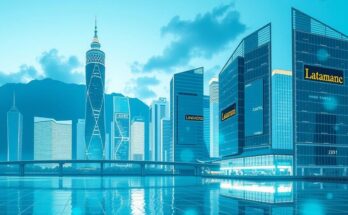Since 2000, technology has profoundly changed our lives, driven by the rise of the internet and smartphones. Broadband access has surged from 50% to 90% in America, while cell phone subscriptions have grown to over 8 billion. Social media has reshaped communication, and environmental tech innovations are paving the way for sustainability. In healthcare, telehealth services are expanding access and user-centered approaches. The trajectory ahead is geared towards responsible innovation and addressing overarching societal challenges.
Since the year 2000, the world has witnessed a transformative era in technology fueled by innovation and expanded connectivity. The aftermath of the dotcom bubble burst catalyzed both growth and challenges in the tech industry. Today, over 90% of Americans have broadband access, vastly up from 50% at the millennium’s start, while globally over half the population is online, a leap from just 7%. Mobile technology has also surged, with cell phone subscriptions skyrocketing from 740 million to over 8 billion in 20 years, indicating a world now rich with devices. The introduction of portable technology made an indelible mark on our lives; Apple changed the game with the iPod in 2001 and later the iPhone in 2007. These innovations paved the way for personal technology to integrate into our everyday routines, profoundly impacting sectors like media, climate action, and healthcare. Media consumption experienced a radical transformation with the advent of social media. In the early 2000s, platforms like Myspace were just beginning to take shape. By 2018, Facebook alone boasted 2.26 billion users, setting off a wave of online communities that fostered diverse voices. However, the downside includes the rise of disinformation and polarization, prompting many startups to seek solutions for content moderation. As society grapples with climate change, technology is being harnessed to move towards sustainability. The 2000s saw a resurgence in green tech investments, leading to the advent of various startups focused on clean energy solutions. Recent innovations, like carbon capture from companies such as Carbon Engineering, signify a commitment to reversing environmental damage. In healthcare, the 21st century began with significant advancements in biotechnology. Telehealth has surged during recent years, especially amid the pandemic; new technologies like symptom checkers address patient concerns directly, promoting a more patient-centered approach. Startups are transforming healthcare delivery mechanisms, making them more accessible than ever before. Looking ahead, technology firms are adapting to the demands of the Fourth Industrial Revolution by engaging with challenges from previous technological milestones. The Technology Pioneers community exemplifies this progress, showcasing how companies can innovate while addressing pressing issues through collaboration and creative solutions. The trajectory of technology promises to shape the future, fostering a connected world that balances innovation with responsibility.
The last two decades have catalyzed significant technological advancements globally, affecting how we communicate, consume media, and address critical issues like climate change and healthcare. The onset of the internet and smartphones has blurred geographical boundaries, facilitating unprecedented online connectivity. This shift has cultivated new cultural avenues while also bringing forth challenges such as misinformation. Startups now have a dual mandate: innovate swiftly and responsibly navigate the repercussions of their technologies.
The evolution of technology since 2000 reflects a complex narrative of progress enriched by connectivity and innovation. While advancements have allowed us to communicate and engage with each other in increasingly personalized ways, they also carry responsibilities to combat misinformation, environmental decline, and ensure equitable access to healthcare. As we dedicate ourselves to future innovations, learning from the past will be crucial in fostering a balanced technological landscape.
Original Source: www.weforum.org



